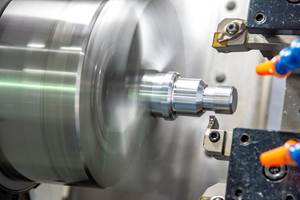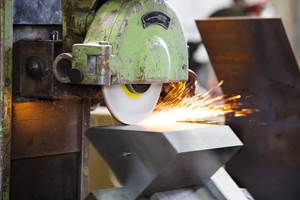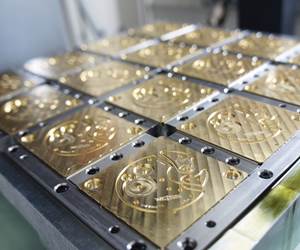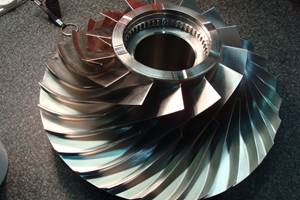Grinding Machine Increases Tool Supplier’s Production
Komet of America Inc. had a problem: extra setup was causing a production bottleneck. Junker's Lean Selection allround grinding machine proved to be a cost-effective upgrade in technology that decreased setup times.
In order to stay competitive in their industries, manufacturers must always be on the lookout for new ways to provide value while keeping cost to a minimum. That is one of the duties of David Zurowski, Dihart carbide group leader at Komet of America Inc. (Schaumburg, Illinois). When the company needed to produce complex tools at higher production rates, he knew its existing grinders could not keep up with the task. By investing in a universal cylindrical grinding machine from Junker (Elgin, Illinois), Komet was able to decrease production time while providing the same, high-quality products.
Established in 1918, the Komet Group is a full-line supplier of drilling, boring, reaming, threading and milling tools. With a total workforce of 1,600, the privately held company manufactures reamers, cutting rings and rapid-set heads with carbide and cermet blades. Led by President and CEO Jan Pflugfelder, Komet of America and its 140 employees are dedicated to the design and manufacturing of special indexable tools, polycrystalline diamond tools and reamers.
With a growing demand for complex tools, Komet needed to manufacture at higher production rates without sacrificing quality. The company determined that its existing grinders could no longer keep up with effectively producing its multi-step tools. In particular, tools with a flat diameter and back taper caused a major production bottleneck because the grinders required an extra setup to adjust the table to match the angle.
Komet began searching for a solution that would remove this extra setup as well as grind the tools in one clamping to simplify the process. Moreover, the company needed the grinding machine to be delivered in a short amount of time and to be able to accommodate a diamond grinding wheel. To meet these requirements, Komet searched for a CNC grinding machine with a freely programmable B axis that could accurately and efficiently grind parts. According to the company, Junker’s Lean Selection allround stood out because it offers a rigid B axis with 0.0001-degree resolution that is capable of grinding all the tapers Komet needs to manufacture its tools. Along with the crucial B axis, the flexibility of the grinding machine set Junker apart from the competition, the company says.
Mr. Zurowski says Komet selected a grinder with a choice of two grinding spindles because “we believe that we will have fewer limitations having one wheel per side and more clearance for our complex tools.” The machine was also available in a short delivery time and at an appealing price point, he says.
In addition to the proper mechanical features, the company sought a custom-designed grinding program to reduce the amount of air grinding. The carbide inserts ground on each reamer are set at common intervals along the diameter, meaning the grinding surface is interrupted. After several discussions about the problem, Junker suggested using its gap detection acoustic sensor to control the workhead speed. Now, when the grinding spindle detects air grinding, the workhead rotates quickly until the next carbide insert is detected. At each insert, the workhead slows to the “grind” setting then speeds up again to the “air” setting when finished grinding. This is designed to ensure the best cycle time.
In April 2015, the Junker Lean Selection allround arrived at Komet and was up and running shortly thereafter. With machine operation in full swing, the company immediately noticed significant savings in production times. Mr. Zurowski says that setting back the taper with the B axis has been easier, hassle-free and faster for operators. “In setup, we save around 30 to 35 minutes,” he says. The grinder’s flexible design not only provides significant savings in setup time, but it also reduced running time by 5 to 10 minutes per part. The freely programmable B axis enables the operator to grind continuously without having to change out the grinding wheel.
Despite the improved run time and setup time, Komet detected a final inefficiency after installation. Some parts required a wheel change in order to grind multiple features, making wheel-change time a critical factor in throughput. To improve change-over time and prevent potential quality issues when mounting a new wheel, the company implemented Junker’s three-point grinding wheel mounting system, which reduces wheel change-over times to less than 20 minutes and guarantees a wheel concentricity of less than 2 microns. Now that the system is installed, the company says it is experiencing a further reduction in setup times, improved grinding times and even better part quality.
“From our experience in grinding reamers and the way we set up and run the Junker, our finished product is the same quality despite a reduction in production time, which is what we were looking for,” Mr. Zurowski says.
Komet uses the same grinding wheels as it previously did, but the company says that setup is simpler, change-over is faster, and grind time is reduced. The machine is equipped with the JUWOP/LS programming system, in which the graphically supported data entry and to-scale representation on the screen are designed to make machine programming easy with little or no training.
Today, the company produces high-quality reamers with greater efficiency and at competitive costs for a quality/value proposition, Mr. Zurowski says. The economical and flexible Junker Lean Selection allround gives the tool supplier the freedom to manufacture a wide range of parts with high quality and precision as it aggressively seeks to expand its markets and provide new applications to its customers.
Related Content
Threading On A Lathe
The right choices in tooling and technique can optimize the thread turning process.
Read MoreChoosing The Right Grinding Wheel
Understanding grinding wheel fundamentals will help you choose the right wheel for the job.
Read MoreWatchmaking: A Machinist’s View
Old-world craftsmanship combines with precision machining on a vertical machining center and Swiss-type lathe to produce some of the only U.S.-made mechanical wristwatch movements.
Read MoreWhen Organic Growth in Your Machine Shop Isn’t Enough
Princeton Tool wanted to expand its portfolio, increase its West Coast presence, and become a stronger overall supplier. To accomplish all three goals at once, acquiring another machine shop became its best option.
Read MoreRead Next
3 Mistakes That Cause CNC Programs to Fail
Despite enhancements to manufacturing technology, there are still issues today that can cause programs to fail. These failures can cause lost time, scrapped parts, damaged machines and even injured operators.
Read MoreThe Cut Scene: The Finer Details of Large-Format Machining
Small details and features can have an outsized impact on large parts, such as Barbco’s collapsible utility drill head.
Read More

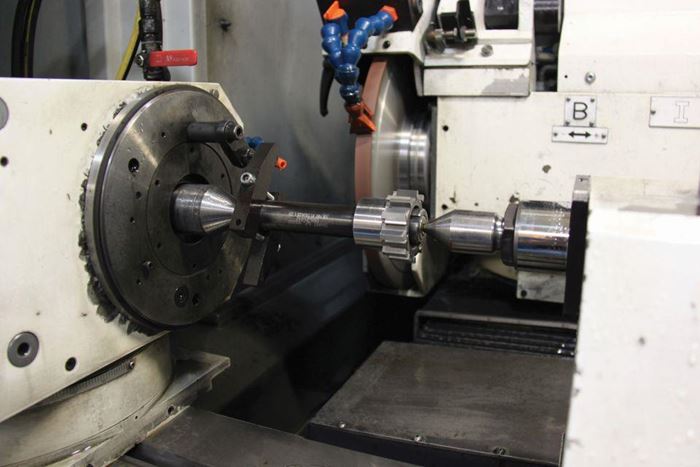
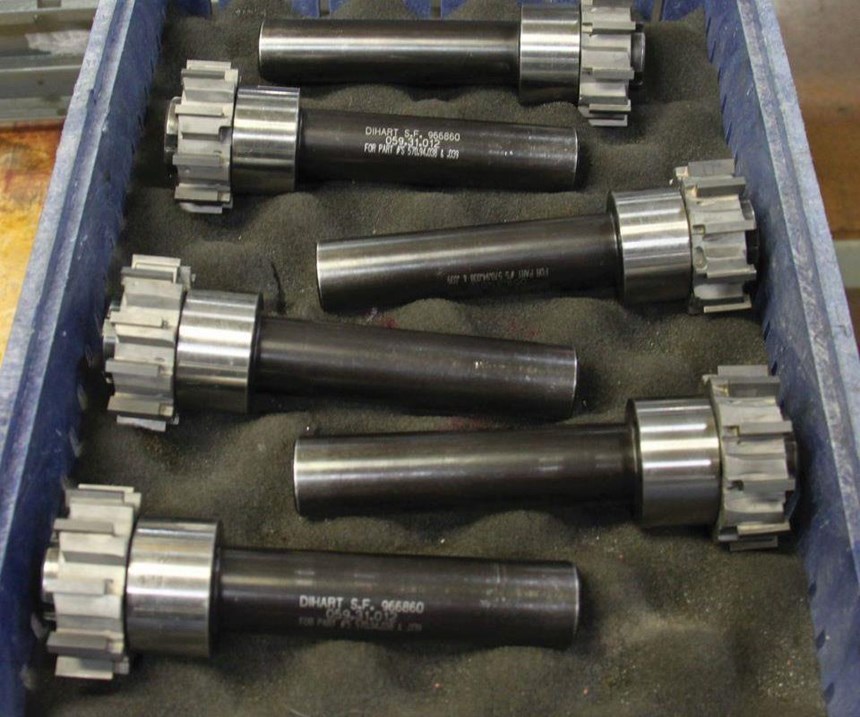
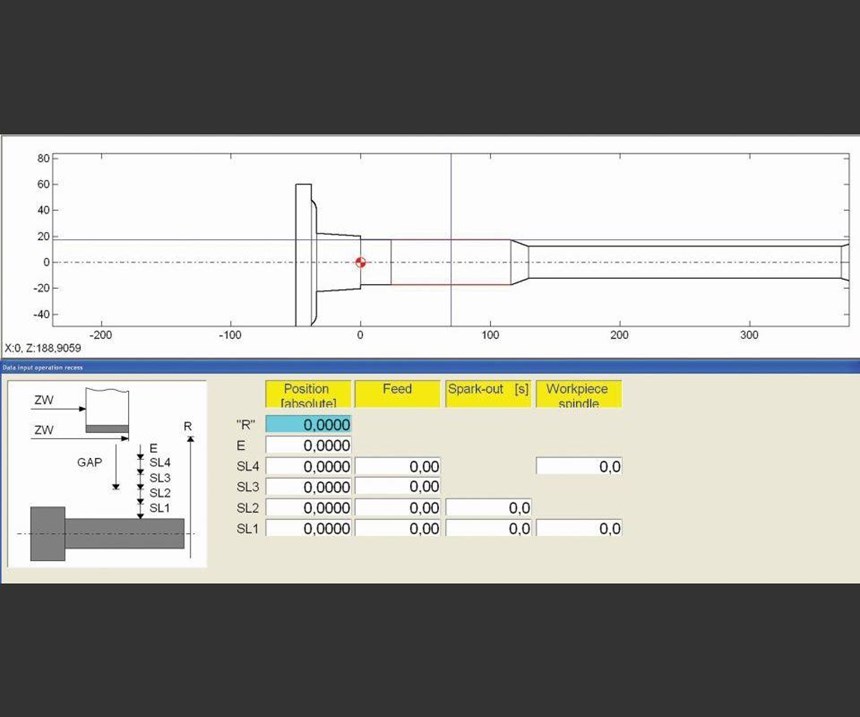






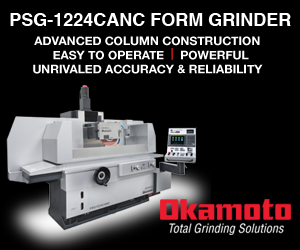
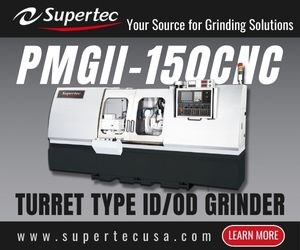
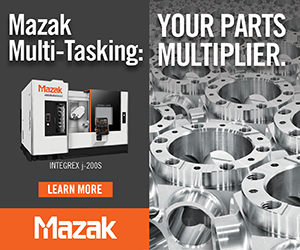





.png;maxWidth=300;quality=90)



